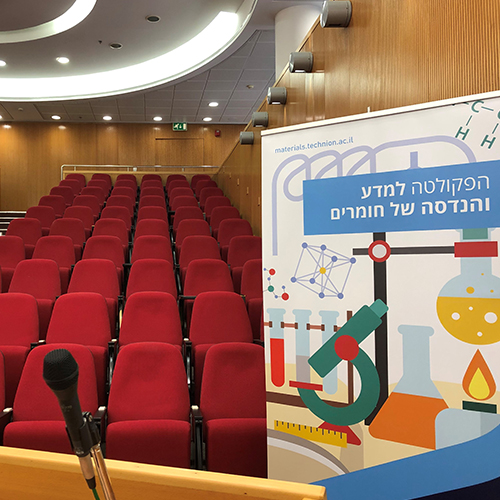
Ms. Tina Khairallah - M.Sc. candidate
10.3.2024
David Wang Auditorium, 3rd floor Dalia Meidan Bldg.
14:30
Hydrogel microparticles (HMPs) are becoming essential in many fields for their small size, high water content, and other unique properties, especially in drug delivery. Various methods to form HMPs have been proposed, including microfluidics, membrane, and batch emulsion. However, these methods often fall short of precisely controlling particle size and scalability, and they face limitations regarding assembly, biocompatibility, and cost-efficiency. Emulsification through a porous medium to form functional hybrid protein-polymer HMPs remains unexplored. Inspired by oil recovery and espresso extraction processes, we present the Aided Porous Medium Emulsification for Hydrogel Microparticle Synthesis (APME-HMS) system, a novel approach that utilizes the emulsification within a porous medium for effective droplet formation that can subsequently crosslink to form HMPs. Using the APME-HMS system, we successfully synthesized responsive HMPs varying in size from bovine serum albumin and polyethylene glycol diacrylate (PEGDA) while preserving the protein’s structure and functional integrity. This preservation enables the formation of cytochrome c and PEGDA HMPs for detecting hydrogen peroxide in various concentrations. The system’s adaptability is presented by its efficient formation of HMPs using minimal volumes within a few minutes. Moreover, the ability of the system to generate various HMP types broadens the spectrum of HMP manufacturing methods, positioning it as a cost-effective, biocompatible, and scalable method for diverse biomedical uses, such as in biosensing devices.


